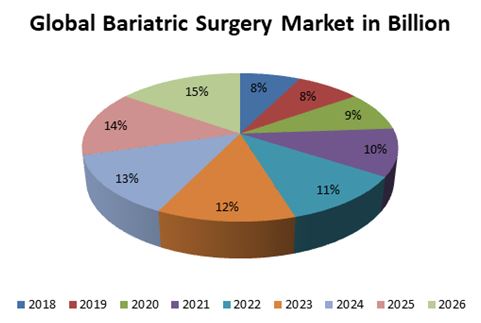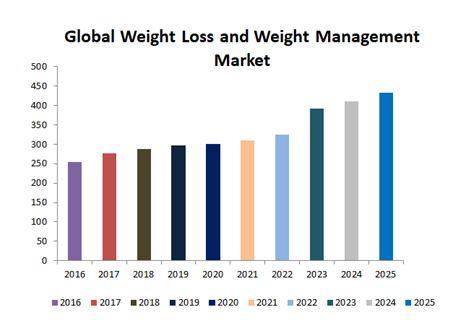ME Conferences extends its warm welcome to “7th International Conference on Obesity and Chronic Diseases” which is going to be held on November 28-29, 2024 in Bali, Indonesia. Working under the theme "A Comprehensive Approach to Preventing Obesity and Chronic Illnesses” Chronic Obesity 2024 conference invites all the renowned scientists, Diabetologists, Endocrinologists, Surgeons, Paediatricians, Yoga and Natural Therapists, General Physicians, Primary Health Care Specialists, Epidemiologists, Pharmaceutical Industrial Delegates, Talented Young Scientists and Student communities from worldwide under a single roof where investigators across the globe can meet, network, perceive and present new scientific innovations.
Chronic Obesity 2024 is a worldwide stage to discuss the topics like Obesity and Cardiovascular Diseases, Chronic Respiratory Diseases, Depression & Mental Illness, Diabetology & Metabolic Diseases, Thyroid & Autoimmune Diseases, Obesity and Cancer, HIV/AIDS, Morbid Obesity & Chronic Obstructive and Pulmonary Disease (COPD), Obesity: Childhood, Teens, Adolescence, Pediatric Obesity, Obesity and Pregnancy: Risks Factors, Genetic Obesity, Obesity and Diet, Risk Factors Associated with Obesity, Liposuction and Advanced Weight Loss Treatments, Anti-Obesity Drugs and Weight-Loss Supplements, Ayurveda and Naturopathic Medicine, Yoga, Counselling and Physical Therapy, Digital Therapeutics of Chronic Diseases, Current Research on Obesity, Challenges and Prevention of Chronic Diseases. Upcoming Chronic Obesity 2024 gives the assessment of Obesity Symposiums 2024, Chronic & Metabolic Workshops 2024, Diabetes Treatment discussions and Cholesterol Metabolism Seminars
Target Audience:
-
Metabolic & Bariatric Surgeons
-
Basic Clinical Research Scientists & Students
-
Registered Dieticians & Nutritionists
-
Physicians
-
Diabeticians
-
Industry Professionals
-
Health Promoters
-
Pharmacists
-
Medical Colleges
-
Integrated Health Professionals
-
Dieticians and Nutritionist
-
BMI Training Institutes
-
Diabetes Educators
-
Physical Therapists
-
Yoga & Fitness Professionals
-
Obesity & Endocrinology Associations and Societies
-
Business Entrepreneurs
-
Public Health Professionals
Obesity is one of the major causes for cardiovascular diseases; Obesity is associated with an increased cardiovascular risk itself by atrial enlargement, ventricular enlargement. It leads to several structural and functional changes of the heart, which causes heart failure and the altered myocardial structure increases the risk of atrial fibrillation and sudden cardiac death. By the Mechanisms through which obesity increases CVD risk involves drastic changes in body composition that can affect haemodynamic functions too.
-
Hypertension
-
Coronary artery disease
-
Atherosclerosis
-
Dyslipidaemia
-
Glucose intolerance
-
Obstructive sleep apnea
-
Thromboembolic disease
-
Inflammation in cardiovascular disease.
Obesity has been emerged as an important risk factor for the respiratory diseases due to adoption of sedentary lifestyles and increased pollution. In obese people, Fat tissue accumulation damages ventilatory function in adults and children. In other terms, Thoracic restriction associated with obesity is usually mild and is attributed to the mechanical effects of fat on the diaphragm and the chest wall resulting obstructive diaphragm excursion and reduced thoracic compliance.
In order to control obesity, a proper diet should be followed. Diet is the term which relates the caloric intake over particular time. A proper diet should be consists of balanced nutrition with fewer calories. Very low calorie diet - A very low calorie diet (VLCD) is a diet which involves consuming less than 3350 kilojoules (800 calories) per day and fewer intakes of food containing saturated fat, added sugars and alcohol.
-
Atkins diet
-
Ketogenic diet
-
Vegetarian diet
-
Vegan diet
-
Raw food diet
-
Plenty intake of water and dietary fibres
-
Avoid fad diet
It is a well-known fact that overweight (having a BMI of 30 or above) are at greater risk of developing metabolic chronic disorders like type 2 diabetes mellitus, insulin resistance. Accumulation of adipose tissue affects metabolism by secreting hormones, glycerol, and other substances including leptin, cytokines, adiponectin, and proinflammatory substances, and non-esterified fatty acids which are involved in the development of insulin resistance and disruption of fat metabolism. And the secretion of these substances will be increased leading to diabetes in obese individuals.
Auto Immune diseases mainly related with decreased metabolic rate, decreased thermogenesis, and interrelate with a higher body mass index (BMI). As over weight is linked to many endocrine abnormalities including thyroid dysfunction .In obese people due to excess secretion of hormones, it influences the activity of thyroid hormones and coincides with dysfunctions of thyroid immunity and thyroid gland.
Tumour cells are initiated and progressed in obese by combined effects of chronic low level inflammatory environment of adipose tissue causing DNA damaging, reduced DNA repair and the endocrine alterations leading to cancer, and Fat tissue produces excess amounts of oestrogen.
HIV-infected patients who underwent the antiretroviral therapy (CART) can live longer but comorbidities emerge earlier and more frequently. Among them metabolic and cardiovascular diseases are two leading causes of death for HIV-infected patients. As Overweight cause risk factors like reducing immunity through various auto immune disorders and chronic diseases in the general population that increasingly affect HIV-infected people. Hence obesity seems to have a detrimental effect on immune recovery after CART initiation.
-
Serology
-
Plasma viral load
-
Heterosexual transmission
Moreover, obesity in patients with chronic obstructive pulmonary diseases were associated with several other health consequences like adipose tissue dysfunction, increased work of breathing the additive effects can make it a struggle to breathe and cause dyspnea -shortness of breath. Obesity also increases the risk of pulmonary disease, stroke, heart attack, and dementia and others like Transient nocturnal desaturation is due to decreased blood oxygen levels
Overweight and obese kids are the result of hereditary applications and other environmental factors. The child would going to remain hefty in adolescence and affected with further complications like diabetes, cardiovascular diseases and others by the pattern of Physiology and genetic history of child.
-
Childhood obesity
-
Early secondary growth ( Maturation)
-
Comorbidities of Obesity in the Young
-
Obesity and Gastrointestinal Disorders in Children
-
Effects of Diabetes, Insulin Resistance & Oxidative Stress on young ones.
It is the nutritional disorder among children and adolescents, according to the global report, around 20-24% children are under the cover of obesity and also the prevalence of obesity related risks like particularly obesity related–sleep disorders and non-alcoholic fatty liver disease are mostly visible in children in past few years, and type2 diabetes in paediatric patients.
Due to excess body mass there baby growth and function will be effected, The major risk factor for obese pregnant women is difficulty during vaginal delivery and also there is a risk of miscarriage, and a very high need of cesarean section and involves risk complications like C-section wounds and infections.
Genetics contribute a one third part of obesity with the discovery of more than 50 genes that are strongly associated with it. The presence or absence of genetic factors tells susceptibility to obesity. In general, people who have obesity have multiple genes that susceptible them to gain excess weight. Such genes are the fat mass and obesity-associated genes (FTO gene), which are found in up to 50% of the population.
-
Leptin deficiency
-
Rare-single gene defects
-
POMC deficiency
-
More tendencies to store body fat.
Obesity or overweight is obtained due to lack of physical inactivity, improper eating patterns, increased stress levels, not enough sleep. Over weight leads to several health complications like chronic diseases and others. The risk factors associated with obesity are of 2 kinds, some can be altered like unhealthy life style habits and environment. And others are like long-term unaltered such as family history, hereditary, race and ethnicity and sex.
-
High blood glucose (diabetes)
-
Cardiovascular diseases
-
Chronic respiratory diseases
-
High blood cholesterol and triglycerides
-
Bone and joint complications
-
Gallstones and liver problems
-
Depression and mental illness
-
Sexual problems
There are numerous advantages to using an ozone sauna. At Nouveau Health & Wellness, we frequently advise patients seeking weight loss and improved exercise regimen efficacy to pursue this course of treatment. But it can also enhance health in a variety of ways. Thanks to the action of ozone on hemoglobin and red blood cells (erythrocytes), this very successful technology allows for the reduction of the chain of fatty acids, which promotes the clearance of fat cells and improves tissue oxygenation.
Liposuction is not an overall weight loss method or a treatment, just a kind of cosmetic surgery, which alters the body shape by breaking or sucking up the body fat which is undesirable. It is mainly worked on the abdomen, thighs, buttocks, neck, chin, upper and backs of the arms, and calves. The unwanted fat is removed through a hollow instrument, named as cannula, which is applied with powerful, high pressure vacuum and inserted under the skin.
Overweight can be under control through weight loss supplements and drugs, the prescript weight loss medications along with a low calorie diet and the doctors approved exercise plan will give the best outcome and less side effects. It is noticed that 3%-9% of weight loss is assisted with the anti-obesity drugs.
-
Diet pills
-
FDA approved weight loss drugs
-
Garcinia Cambogia Extract
-
Raspberry ketones
-
Caffeine
-
Green coffee bean extract
Ayurveda medications are the safe and holistic methods for management of overweight with no any side effects. In nature many herbs were helpful for burning fats. Naturopathy deals with the weight loss management by using the elements obtained from the nature for long term benefits.
-
Medicinal herbs
-
Ayurvedic weight loss capsules
-
Low calorie satwik food
-
Herbal powders
Fitness programmes and diet should be planned regularly for controlling over weight, which are science based and associated with yoga-specific asana, cardio exercise, breathing exercise and meditation.
-
Physical work outs
-
Weight reduction therapeutic massages
-
Steam and sauna
-
vibrators
-
General Psychology
-
Antidepressant
-
Healthcare and Mental Health
-
Therapeutic Lifestyle Changes
-
Reducing distress
Digital therapeutics are boon in 21 century, To create lifestyle behaviour changes by using software and remote monitoring tools with less medications. These programmes are incorporated by tracking sensors which gather patient health data along with their regular counselling delivered through smart mobile app and other smart devices as a self-report.
-
e-Health
-
Wearable gadgets
-
Insulin pumps
-
Blood glucose meters
During past decades the growth curve of obesity is raising, even though one of the main global health objectives for the year 2020 is to reduce the prevalence of obesity among the population, but the situation is not satisfactory. Therefore there is more attentiveness is authorized on obesity management through,
-
New innovations on emerging trends
-
Advancement in behavioural and psychosocial observational research
-
Clinical physiology
-
Concentrating on diabetes and its complications
-
Drug treatments and smart devices for obesity
A well-known scenario, Prevention is better than cure. Preventive measures are the primary health care options to avoid chronic diseases by obtaining healthy life style changes.
-
Maintain a healthy weight
-
Avoid tobacco use
-
Regular physical activity
-
Proper diet
-
Regular clinical and physiological check ups
-
Enough sleep
Importance & Scope
The Obesity and Chronic Diseases Conference seeks to create awareness of the chronic health issues brought on by obesity as well as knowledge about management and prevention.
The conference is anticipated to provide a wide range of research from many nations in order to develop a cooperative solution to obesity and chronic diseases. Anyone interested in learning about, exchanging ideas with, or experiencing chronic conditions like diabetes, cancer, etc. will find Chronic Obesity 2024 to be of interest. The Chronic Obesity 2024 conference aims to bring together metabolic and bariatric surgeons, dieticians, physical therapists, clinical research scientists, and healthcare professionals from many locations to exchange vital knowledge and research on chronic obesity and bariatric.
Global Bariatric Surgery Market
The market for bariatric surgery is driven by the growing prevalence of obesity cases worldwide. In the near future, market growth is anticipated to be fueled by factors including rising awareness among the obese population regarding bariatric surgery and devices, the availability of doctors who specialise in bariatric surgical techniques, and the development of less invasive treatments for bariatric surgery. The main barrier to market expansion is the price of bariatric surgery.
According to verified marketing research, the global market for bariatric surgery was worth USD 1.8 billion in 2018 and is projected to increase to USD 3.7 billion by 2026, with a CAGR of 8.83% between 2019 and 2026.

Global Weight Loss and Weight Management Market
The global market for weight loss and weight management was estimated to be worth USD 254.11 billion in 2016 and is projected to grow at a CAGR of 6.1% to reach USD 432.97 billion by 2025. The prevalence of obesity and other ailments has increased due to changes in lifestyle. People are adopting weight and nutrition control programmes as they become more aware of fitness and health aspects.




